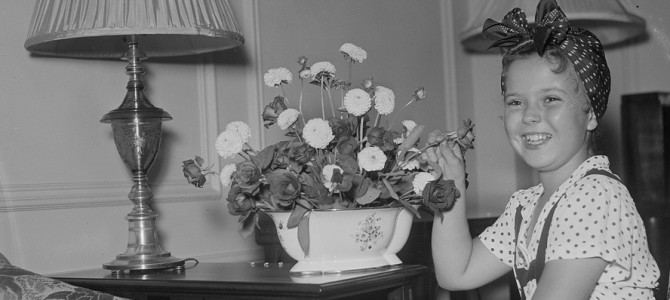To mark Shirley Temple Black’s death this week, Jonathan Freedland — columnist for the Guardian, presenter of BBC R4’s The Long View, and writer of thrillers under the name Sam Bourne — tweeted to his 48,000 followers:
In 1938 the US Congress debated whether Shirley Temple was a Communist. She was ten. pic.twitter.com/BZh7LoKxrU
— Jonathan Freedland (@Freedland) February 11, 2014
As you can see, this was retweeted over 1,500 times and marked as a “favorite” by more than 500 people.
It spread across the internet, as these things do, and ended up being reworked at various sites. Here, for example, was the Washington Post headline on the matter:
Congress once debated whether Shirley Temple was a communist. She was 10.
We were all able to smugly pat ourselves on the back about how awful Congress is and how deluded anti-Communists were. Again.
Which is funny (or interesting or sad) because what Jonathan Freedland tweeted out and other reporters copied reflexively didn’t have the benefit of being in any way, well, true.
Here’s the deal. The House Committee Investigating Un-American Activities (HUAC), so named in 1946, is well known. But there were a variety of Congressional hearings on Communist and Nazi activity over the years, beginning early in the 1930s. In 1938, Martin Dies and Samuel Dickstein launched a committee to investigate Soviet and other anti-American activities. Which is funny in and of itself because it turns out that Dickstein was a traitor taking cash money from the Soviets at that time.
The Shirley Temple falsehood wasn’t created yesterday. It was actually a smear from the Franklin Delano Roosevelt administration. Dies wrote about the Temple issue in particular in a report to Congress about how the executive branch was obstructing — and even attempting to sabotage — the committee’s work:
As an illustration of the deliberate misrepresentation of the testimony by certain Cabinet officers, I wish to cite one instance. J. B. Matthews, a witness who appeared before our committee, testified as follows:
“The Communist Party relies heavily upon the carelessness or indifference of thousands of prominent citizens in lending their names for its propaganda purposes. For example, the French newspaper Ce Soir, which is owned outright by the Communist Party, recently featured hearty greetings from Clark Gable, Robert Taylor, James Cagney, and even Shirley Temple. The League of Women Shoppers boasts of the membership of Miriam Hopkins and Bette Davis. A list of such persons could be expanded almost indefinitely. No one, I hope, is going to claim that any one of these persons in particular is a Communist. The unfortunate fact, however, remains that most of them unwittingly serve, albeit in this slight way, the purposes of the Communist Party. Their names have definite propaganda value which the party is quick to exploit.”
This was the only testimony by anyone in which the name of Shirley Temple was mentioned. Here is what Secretary of the Interior, Harold F. Ickes, said in a public speech: “They’ve [Committee on Un-American Activities] gone into Hollywood and there discovered a great red plot. They have found dangerous radicals there, led by little Shirley Temple. Imagine the great committee raiding her nursery and seizing her dolls as evidence.”
Here is what Secretary of Labor Francis Perkins said: “Perhaps it is fortunate that Shirley Temple was born an American citizen and that we will not have to debate the issue raised by the preposterous revelations of your committee in regard to this innocent and likeable child.” The above testimony of Mr. Matthews has never been denied and in fact was admitted by some of the screen stars mentioned.
Whatever your thoughts on Communism, HUAC (and its predecessors), Soviet spies, Shirley Temple, or Harold Ickes, the media characterization of Congress debating whether Shirley Temple was a 10-year-old Communist is just flat-out wrong.
As our media show us regularly, reading comprehension is hard and rewriting history to suit a particular agenda is easy.
A media that was a little bit less in love with progressive spin and a little bit more committed to providing context and accuracy would be a welcome change.









